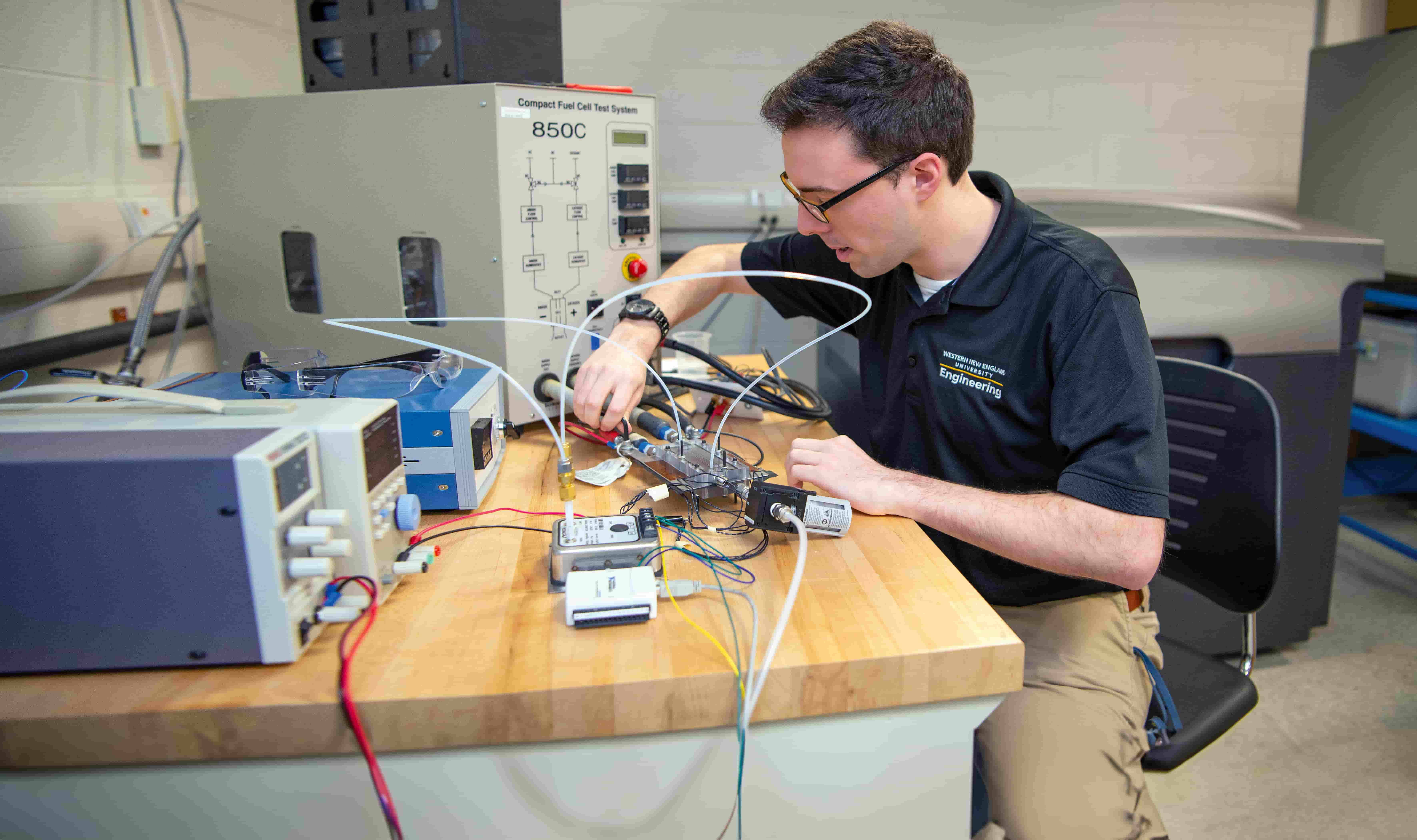Nurturing Engineering Innovators, Shaping the Future
Mechanical Engineers use science, mathematics, and technology to address human need. We are an essential discipline because our role is to help humanity use technology to work and live smarter: automating functions to enhance productivity and performance, harnessing energy sources, developing novel materials, discovering new applications in science and medicine, and designing methods, systems, and manufacturing techniques to improve our world. The National Science Foundation and Academy of Engineering have projected significant shortages of scientists and engineers by the early 2020s. With a PhD in Mechanical Engineering from WNE, you can fill that important talent gap and contribute to the body of knowledge in the field of mechanical engineering as you conduct research in your individual area of interest leading to your dissertation. The PhD research experience and curriculum can be pursued after having received either the MS or the BS degrees.
Why Choose the PhD in Mechanical Engineering?
Earning a PhD in Mechanical Engineering full- or part-time from WNE gives you the opportunity to advance in your career through undertaking signature work at the threshold of emerging technologies and in pursuit of a deeper understanding of a complex world. At the outset of your work and study you will select an advisor from the faculty. You will have access to state-of-the-art laboratories and academic resources. Studying at Western New England University, ranked among Best Undergraduate Engineering Programs by US News & World Report, also offers exciting opportunities to develop your own mentorship and teaching skills as a graduate teaching fellow working with undergraduates on their own research and design initiatives such as the WNE’s SAE Baja Project or ASME Design Project.
What Will You Study?
Areas of PhD research in Mechanical Engineering at Western New England include Mechatronics and Robotics, Thermo-fluids and Energy, Vibrations and Mechanics, Energy Systems, Novel Materials for energy and environmental applications, and Design and Manufacturing. Through a combination of coursework and independent research culminating in your dissertation, you will gain the foundation and depth of mechanical engineering theory and practice, a breadth of knowledge across multiple areas of specialization.



